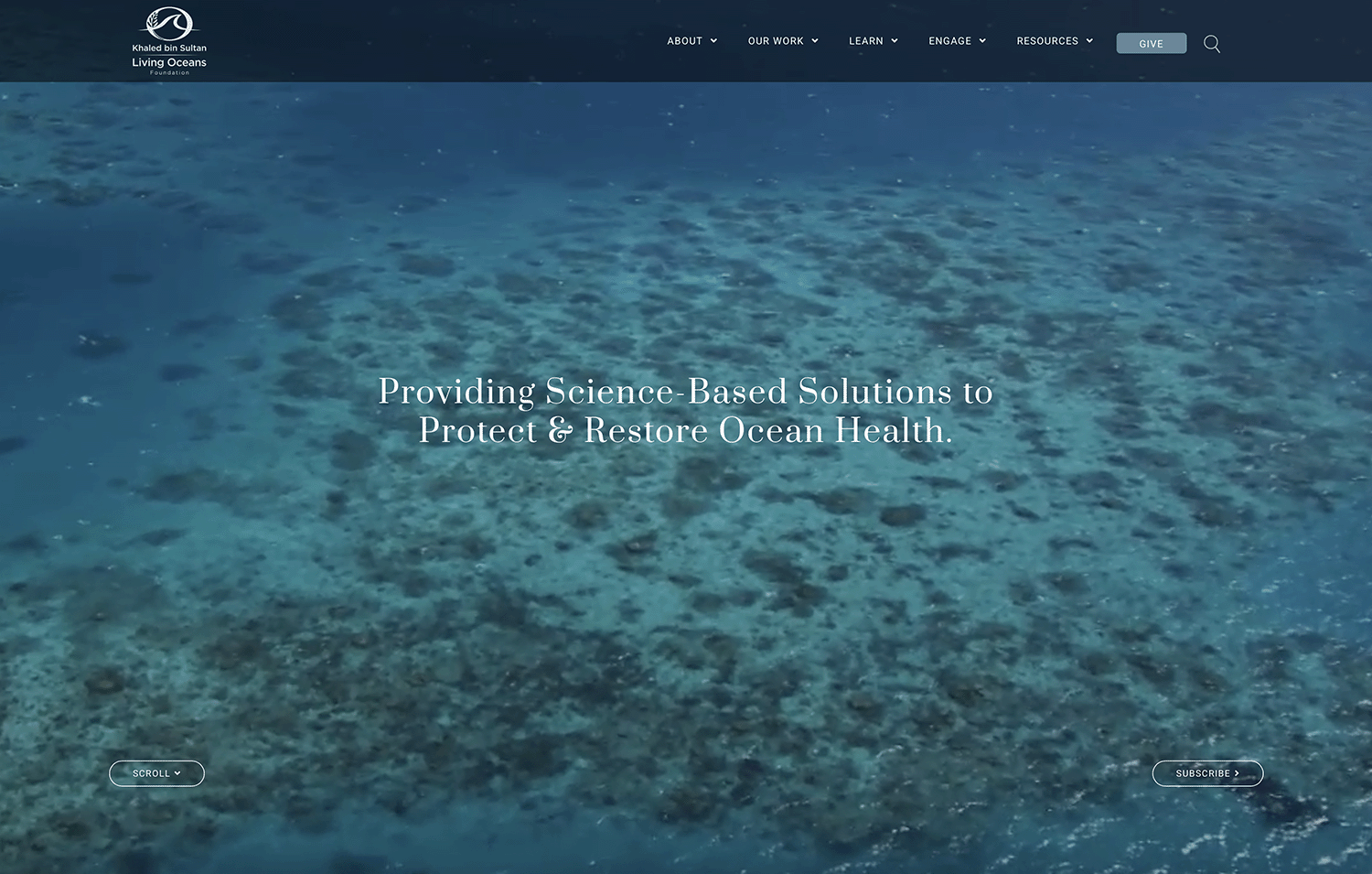Mangrove Education and Restoration Program Blog
I have arrived at the University of the West Indies Discovery Bay Marine Lab in Jamaica and I’m anxious to implement the final phase of the J.A.M.I.N. program. This is the second year of the program and it has proved to be another successful year.
Throughout the school year, I communicate on and off with the teachers who participate in J.A.M.I.N. Recently, Fulvia Nugent, Biology teacher and Science Department Head at William Knibb High School sent me a photo of her students at Open Day, which is similar to what we call an Open House in the United States. For the past two years, I have been working with Fulvia to implement the J.A.M.I.N. program in her classes and I’ve gotten to know her quite well. When she sent me this photo, a huge smile came across my face.
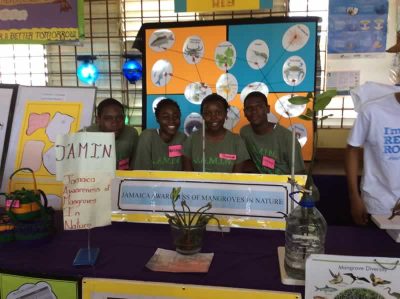
J.A.M.I.N. students at William Knibb High School Open Day (Photo by Fulvia Nugent)
Whether you are a teacher, parent, student, or even a bystander it’s easy to see that Fulvia is one of those teachers that you don’t forget. Even though Fulvia doesn’t have all of the resources that she needs to teach science, she makes the most out of what she has in order to provide her students with the best learning opportunities possible. That is exactly what Fulvia has done with the J.A.M.I.N. program.
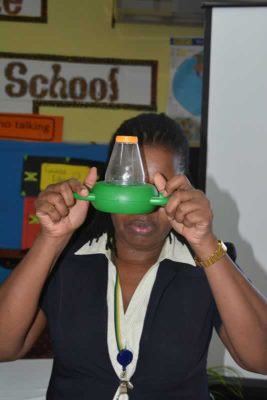
Fulvia is a lifelong learner, which allows her to convey the most up-to-date information to her students. Here, Fulvia is looking at a marine snail through a microviewer.
During Open Day, Fulvia decided to showcase a couple of the projects that the students have been working on. She felt that it was important for the students to showcase the J.A.M.I.N. program as part of this day where parents/guardians, family members, administrators, and other students walk from classroom to classroom to find out what the students are learning in various classes. Fulvia also thought that this was a great chance to educate the adults about the importance of mangroves.
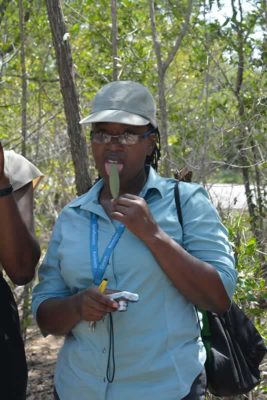
Fulvia tastes a salty black mangrove leaf alongside her students. She is an example of a great role model and she isn’t afraid to “get her hands dirty.”
Fulvia gave the students the opportunity to set up the classroom with the materials from J.A.M.I.N.; however, they felt it best represented the program. The students created signs, printed photos from the project, and they had their mangrove propagules that they had been growing for the past 8 months on display in their classroom. Then the students used the organism print outs from the food web activity to construct a mangrove food web.
Once again, Fulvia reinforced learning of various mangrove concepts and molded life skills as her students took responsibility for the Open Day event. Fulvia described the excitement of the day as the students talked to their peers and adults. She said that the students were invigorated and empowered speaking about the J.A.M.I.N. program and educating others, especially when talking to adults about mangroves.
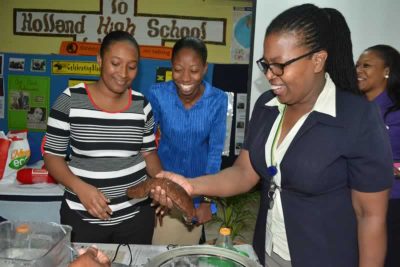
Though it’s not mentioned in the blog, as Science Department Head, Fulvia mentors other science teachers at her school. She jumps right in to hold a slimy sea cucumber.
One of her students said, “I didn’t even think that I would be very good at presenting this information, but now I feel like I have learned so much and I’m really good at explaining it.”
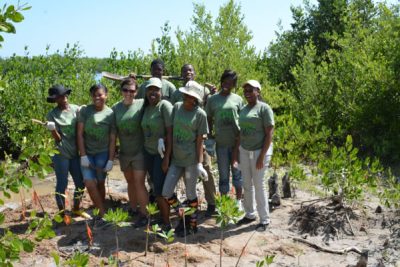
Students swarm around Fulvia for a photo in the midst of planting mangrove trees.
This is just one example of Fulvia going above and beyond to educate her students and provide opportunities for them. Fulvia integrates the mangrove program into their curriculum as often as possible. For example, when the students learn about photosynthesis, she moves the propagules to a classroom with more light and the leaves of the seedlings turn toward the sun.
Fulvia inspires her students to want to learn more and to be better people. This is why I chose Fulvia Nugent for our Teacher Spotlight. Thank you Fulvia for all that you do!

